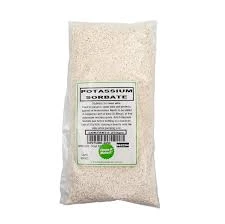
Exploring the Benefits and Uses of Sweeteners 952, 950, and 955 in Food Products
An Overview of Sweeteners E950, E952, and E955
In recent years, the demand for sweeteners has surged as society becomes increasingly health-conscious, actively seeking alternatives to sugar that can satisfy their cravings without the associated calories and health risks. Among the numerous sweetening agents, E950 (Acesulfame K), E952 (Cyclamate), and E955 (Sucralose) have garnered attention for their distinctive properties, uses, and safety. This article delves into these sweeteners, exploring their characteristics, applications, and the ongoing discussions surrounding their safety.
Understanding E950 (Acesulfame K)
Acesulfame K, or Acesulfame Potassium, is a calorie-free sweetener estimated to be 200 times sweeter than sucrose (table sugar). It is often used in a variety of food products, including baked goods, dairy items, soft drinks, and chewing gum. One of the key advantages of Acesulfame K is its stability when exposed to heat and its ability to retain sweetness during cooking and baking. This makes it a popular choice for manufacturers aiming to create sugar-free or reduced-calorie products.
Regulatory bodies, including the U.S. Food and Drug Administration (FDA) and the European Food Safety Authority (EFSA), have evaluated Acesulfame K and deemed it safe for consumption. However, some studies have raised concerns about potential effects on metabolism and the gut microbiome, which continue to spur discussions among health professionals regarding its long-term impact.
The Controversy of E952 (Cyclamate)
Cyclamate, designated as E952, is a synthetic sweetener that is often used in conjunction with other sweeteners to enhance sweetness without an off-taste. It is about 30–50 times sweeter than sucrose and is commonly found in sugar-free products, including soft drinks, desserts, and medications. Unlike Acesulfame K, cyclamate is not as widely used in some regions, particularly the United States, due to historical concerns about its safety.
sweeteners 952 950 and 955

In the 1970s, cyclamate was banned in the U.S. following studies that suggested a link to bladder cancer in rats. However, this conclusion has been debated and contested, leading to renewed interest in its safety. Numerous studies conducted subsequently have not found significant links between cyclamate and cancer in humans. In Europe and several other countries, cyclamate remains a widely used and accepted sweetener, although regulatory scrutiny continues, and discussions about its safety persist.
E955 (Sucralose) A Popular Sugar Substitute
Sucralose, or E955, is another widely recognized artificial sweetener, with a sweetness level that exceeds sugar by approximately 600 times. It is most commonly found in a variety of products, including beverages, desserts, sauces, and even some pharmaceutical products. One of the distinct advantages of sucralose is its remarkable stability, making it suitable for cooking and baking, much like Acesulfame K.
The safety of sucralose has been assessed by various health authorities, including the FDA and EFSA. It has been deemed safe for general consumption, and its caloric content is negligible since it passes through the body without being significantly metabolized. However, some studies have raised questions about its potential impact on gut health and metabolic processes, indicating the need for further research.
Conclusion The Future of Sweeteners
As consumers continue to seek healthier lifestyles and reduce sugar intake, the use of artificial sweeteners like E950, E952, and E955 is expected to rise. Each of these sweeteners has unique characteristics and applications that make them valuable in the food industry. Nevertheless, the ongoing discussions about their long-term safety require continued scrutiny from researchers and health authorities.
Ultimately, while sweeteners can provide a tasty alternative to traditional sugar, it is essential for consumers to stay informed about the latest research and consult health professionals when making dietary choices. Educating the public about the benefits and potential drawbacks of these sweeteners can help in the development of balanced products that meet the needs of health-conscious consumers while maintaining high standards of safety.
-
Why Glacial Acetic Acid Food Grade Is Essential in FlavorNewsMay.26,2025
-
Surging Export Growth of Food Additives in ChinaNewsMay.26,2025
-
How Ammonium Nitrate Fertilizer Boosts Crop YieldsNewsMay.26,2025
-
How 1,2,3-Benzotriazole Shields Plastics from UV DegradationNewsMay.26,2025
-
Cyanide in Gold Mining: Protecting People and the PlanetNewsMay.26,2025
-
Aluminum Hydroxide in Modern Sunscreen FormulationsNewsMay.26,2025
-
Understanding Synthetic Rubber OptionsNewsApr.27,2025
Hebei Tenger Chemical Technology Co., Ltd. focuses on the chemical industry and is committed to the export service of chemical raw materials.
-

view more DiethanolisopropanolamineIn the ever-growing field of chemical solutions, diethanolisopropanolamine (DEIPA) stands out as a versatile and important compound. Due to its unique chemical structure and properties, DEIPA is of interest to various industries including construction, personal care, and agriculture. -

view more TriisopropanolamineTriisopropanolamine (TIPA) alkanol amine substance, is a kind of alcohol amine compound with amino and alcohol hydroxyl, and because of its molecules contains both amino and hydroxyl. -

view more Tetramethyl Thiuram DisulfideTetramethyl thiuram disulfide, also known as TMTD, is a white to light-yellow powder with a distinct sulfur-like odor. It is soluble in organic solvents such as benzene, acetone, and ethyl acetate, making it highly versatile for use in different formulations. TMTD is known for its excellent vulcanization acceleration properties, which makes it a key ingredient in the production of rubber products. Additionally, it acts as an effective fungicide and bactericide, making it valuable in agricultural applications. Its high purity and stability ensure consistent performance, making it a preferred choice for manufacturers across various industries.











